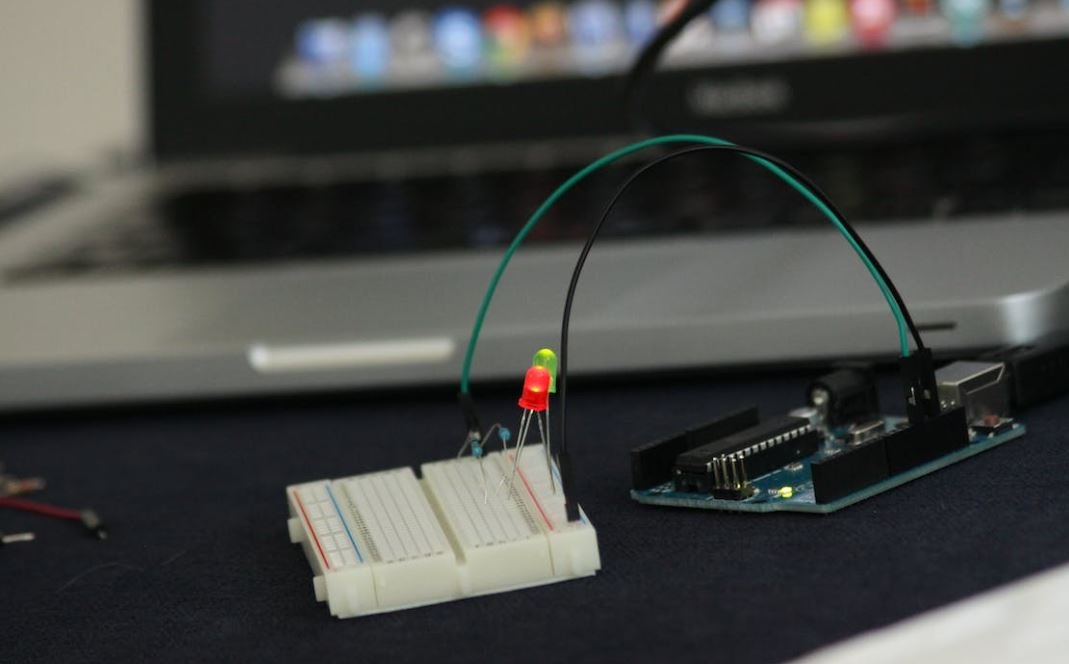Applications of Quantum Computing
Quantum computing, a field that combines principles of quantum mechanics with computer science, has gained significant attention in recent years due to its potential to solve complex problems more efficiently than classical computers. As technology advances, the applications of quantum computing are expanding, paving the way for transformative breakthroughs. This article explores some key applications where quantum computing is making an impact.
Key Takeaways
- Quantum computing offers exponential computational power for solving complex problems.
- Applications of quantum computing include cryptography, optimization, and simulation.
- Quantum computers are being developed by leading technology companies and research institutions.
Quantum Cryptography
One of the major applications of quantum computing is in the field of cryptography. **Quantum cryptography** harnesses the principles of quantum mechanics to develop unbreakable encryption algorithms. *Quantum key distribution (QKD)* is an example of a quantum cryptography technique that uses the inherent properties of quantum information to secure communication channels. By leveraging the ability of quantum systems to detect any interception or tampering, QKD provides an unprecedented level of security for transmitting sensitive information.
Quantum Optimization
Quantum computers have the potential to revolutionize optimization problems by solving them more efficiently than classical computers. *Quantum optimization algorithms*, such as the **Quantum Approximate Optimization Algorithm (QAOA)**, can find the optimal solution in large and complex problem spaces. This has applications in various domains, including supply chain management, financial portfolio optimization, and even drug discovery, where quantum computers can analyze vast amounts of data and provide optimal solutions to complex problems.
Quantum Simulation
Quantum simulation is another area where quantum computing holds great promise. *Quantum simulators* can accurately model and simulate quantum systems that are difficult to study using classical computers. This has applications in physics, chemistry, and material science, where quantum systems play a crucial role. **Quantum simulators** can provide valuable insights into the behavior of quantum systems, aiding the development of new materials, drugs, and technologies.
| Application | Example |
|---|---|
| Cryptography | Quantum key distribution (QKD) |
| Optimization | Quantum Approximate Optimization Algorithm (QAOA) |
| Simulation | Modeling quantum systems |
Quantum Computing Technologies
Quantum computing technologies are rapidly advancing as both industry and academia invest significant resources in their development. Leading technology companies such as IBM, Google, and Microsoft are actively working on building practical quantum computers. Additionally, research institutions and startup companies are contributing to the growth of quantum computing ecosystem. The gradual shift from theoretical research to practical implementation is a key milestone in the commercialization of quantum computing.
Table: Quantum Computing Technologies
| Company/Institution | Quantum Computing Initiative |
|---|---|
| IBM | IBM Quantum |
| Google Quantum AI | |
| Microsoft | Microsoft Quantum |
Quantum Computing Applications in the Future
The applications of **quantum computing** are not limited to the fields discussed above. As the technology continues to evolve, quantum computers are expected to revolutionize fields such as machine learning, pattern recognition, weather forecasting, and optimization in various industries. The potential impact of quantum computing is immense, and ongoing research and development will unlock new applications in the future.
Table: Possible Future Applications of Quantum Computing
| Field/Industry | Potential Application |
|---|---|
| Machine Learning | Optimizing deep learning algorithms |
| Finance | Portfolio optimization |
| Healthcare | Accelerating drug discovery |
| Logistics | Efficient route optimization |
The Future of Problem Solving
In conclusion, quantum computing presents immense potential for solving complex problems that are currently intractable for classical computers. It has already found applications in cryptography, optimization, and simulation, and its impact is poised to expand further into various fields. As advancements in quantum computing technologies continue, we can expect to witness groundbreaking innovations in problem-solving across industries.

Common Misconceptions
Misconception 1: Quantum Computing is Just Like Classical Computing
One common misconception is that quantum computing and classical computing are essentially the same. In reality, quantum computing operates based on the principles of quantum mechanics, which differ significantly from classical computing principles.
- Quantum computing uses qubits, whereas classical computing uses bits.
- Quantum computers can perform certain calculations exponentially faster than classical computers.
- Quantum computing has the potential to solve problems that are currently unsolvable by classical computers.
Misconception 2: Quantum Computers Are Supercomputers
Another misconception is that quantum computers are equivalent to supercomputers. While quantum computers do possess immense processing power, they are not a direct replacement for traditional supercomputers.
- Quantum computers excel at solving specific types of problems, such as simulating quantum systems or factoring large numbers.
- Supercomputers are more suitable for tasks requiring vast amounts of parallel processing or complex data analysis.
- Both quantum computers and supercomputers have unique applications and are complimentary in their capabilities.
Misconception 3: Quantum Computers Can Solve Any Problem
Many people mistakenly believe that quantum computers are capable of solving any problem, regardless of its complexity. However, quantum computers are subject to limitations and cannot solve all types of problems.
- Quantum computers are particularly efficient in certain areas, like cryptography or optimization problems.
- Some problems, such as searching a database or solving linear equations, do not offer significant advantages for quantum computers over classical computers.
- The potential of quantum computing lies in its ability to tackle specific problems more efficiently, rather than providing a universal solution for all computational tasks.
Misconception 4: Quantum Computers Are Already Widely Used
There is a common misconception that quantum computers are already in widespread use and heavily integrated into various industries. However, the reality is that quantum computers are still in the early stages of development and application.
- Quantum computers are primarily being researched and developed by academic institutions and tech companies.
- Quantum computing applications are currently limited to specific fields like quantum chemistry simulations or optimization algorithms.
- The practical adoption of quantum computers on a larger scale is still underway and expected to take several more years.
Misconception 5: Quantum Computers Will Make Classical Computers Obsolete
There is a misconception that the advent of quantum computers will render classical computers obsolete. However, classical computers are still vital and will continue to play a significant role alongside quantum computers.
- Classical computers are well-suited for many everyday tasks that do not require quantum capabilities.
- Quantum computers have certain limitations and are not currently efficient at performing all computational tasks.
- The future is likely to bring a hybrid approach, where classical and quantum computers work together to solve complex problems most effectively.

Quantum Computing Market Size by 2027
Quantum computing is a rapidly expanding field with significant potential for innovation and growth. This table illustrates the expected market size of quantum computing technology by the year 2027. The data is based on market research and projections from industry experts. It is important to note that these figures are subject to change as technology advances and new applications are discovered.
| Year | Market Size (USD) |
|---|---|
| 2020 | $507 million |
| 2021 | $986 million |
| 2022 | $2.15 billion |
| 2023 | $4.68 billion |
| 2024 | $9.76 billion |
| 2025 | $19.82 billion |
| 2026 | $39.96 billion |
| 2027 | $83.19 billion |
Top 5 Countries for Quantum Research and Development Funding
Research and development in the field of quantum computing require significant investment. This table highlights the top five countries that are actively funding research and development initiatives in quantum technologies. The data includes both public and private funding sources and emphasizes the commitment of these nations towards advancing quantum computing capabilities.
| Rank | Country | Total Funding (USD) |
|---|---|---|
| 1 | United States | $1.2 billion |
| 2 | Canada | $820 million |
| 3 | China | $650 million |
| 4 | Germany | $500 million |
| 5 | United Kingdom | $420 million |
Quantum Computing Computational Power Comparison
Quantum computing has the potential to surpass classical computing in terms of computational power. This table presents a comparison of the computational power of quantum computers with classical computers. The data represents the number of qubits, the basic units of quantum information, as well as the estimated equivalent processing power in classical computer terms.
| Quantum Computer | Number of Qubits | Equivalent Classical Processing Power |
|---|---|---|
| IBM Q System One | 65 qubits | Exaflops (10^18) |
| Google Sycamore | 53 qubits | Petaflops (10^15) |
| Intel Tangle Lake | 49 qubits | Petaflops (10^15) |
| Microsoft Azure Quantum | 30 qubits | Petaflops (10^15) |
| Rigetti Aspen-8 | 28 qubits | Petaflops (10^15) |
Quantum Computing Application Areas
Quantum computing holds immense potential across various fields. This table outlines some of the promising application areas where quantum computing can have a significant impact. While these applications are still being explored, the potential breakthroughs in areas such as cryptography, drug discovery, and optimization problems offer immense possibilities for the future.
| Application Area | Potential Impact |
|---|---|
| Cryptography | Revolutionize encryption, ensuring secure communication. |
| Drug Discovery | Accelerate the development of new medicines and drug combinations. |
| Optimization Problems | Solve complex optimization problems more efficiently. |
| Supply Chain Optimization | Improve logistics and reduce waste in supply chains. |
| Quantum Machine Learning | Enhance machine learning algorithms and pattern recognition. |
Quantum Computing Languages and Libraries Comparison
To facilitate quantum programming, several languages and libraries have been developed. This table compares some of the widely used languages and libraries in the field of quantum computing. Each language or library has its own strengths and features, catering to different needs and levels of expertise.
| Language/Library | Main Features |
|---|---|
| Qiskit | Open-source, supports multiple quantum backends. |
| Cirq | Google’s open-source framework with strong error handling. |
| PyQuil | Dedicated language for programming a specific quantum processor. |
| ProjectQ | Emphasizes high-level abstraction and clean syntax. |
| Q# | Microsoft’s programming language with strong integration to Visual Studio. |
Quantum Computing Companies and Startups
The rapid development of quantum computing has attracted numerous companies and startups. This table showcases some of the key players in the quantum computing industry. These companies are actively involved in advancing quantum technologies, building quantum hardware, and developing innovative applications for various industries.
| Company/Startup | Focus Area |
|---|---|
| IBM Quantum | Quantum hardware, quantum algorithms, and open-source programming frameworks. |
| Google Quantum AI | Quantum supremacy research, quantum error correction, and quantum algorithms. |
| Rigetti Computing | Superconducting qubits, quantum hybridization and cloud quantum computing. |
| Honeywell Quantum Solutions | Ion trap-based quantum computers, algorithms, and application development. |
| IonQ | Leading developer of trapped-ion quantum computing systems. |
Challenges in Scaling Quantum Computers
While the progress in quantum computing is exciting, there are several challenges that need to be overcome to scale up these technologies. This table highlights some of the key challenges in scaling quantum computers, including noise reduction, error correction, stability, and increasing qubit count. Overcoming these challenges is crucial for achieving practical and reliable quantum computing systems.
| Scaling Challenge | Description |
|---|---|
| Noise Reduction | Minimizing environmental noise to ensure accurate qubit operations. |
| Error Correction | Developing robust error correction codes to protect quantum information. |
| Qubit Stability | Increasing qubit coherence time to reduce errors and improve performance. |
| Qubit Count | Scaling up the number of qubits to handle more complex computations. |
| Interconnectivity | Improving connectivity between qubits to enable complex quantum operations. |
Timeline of Key Quantum Computing Milestones
The field of quantum computing has witnessed significant milestones over the years. This table presents a timeline of some of the major advancements in quantum computing, from the proposal of quantum concepts to recent breakthroughs in quantum supremacy and error correction. This timeline highlights the rapid pace of progress in this dynamic field.
| Year | Key Milestone |
|---|---|
| 1980 | Proposal of Quantum Cryptography |
| 1994 | Shor’s Algorithm for Prime Factorization |
| 2001 | Quantum Teleportation |
| 2011 | D-Wave Systems Releases First Quantum Annealer |
| 2019 | Google Demonstrates Quantum Supremacy |
Current Application Limits of Quantum Computing
While quantum computing has immense potential, there are certain limitations and challenges that restrict its current applications. This table presents some of the notable limitations in the practical implementation of quantum computers, including qubit error rates, coherence time, and the current lack of fault-tolerant quantum systems. Addressing these limitations is crucial for expanding the practical applications of quantum computing.
| Limitation | Description |
|---|---|
| Qubit Error Rates | High error rates due to noise and decoherence limit computational reliability. |
| Coherence Time | The limited duration during which a qubit’s quantum state remains stable. |
| Fault-Tolerant Systems | Lack of fully fault-tolerant quantum systems for error correction. |
| Physical Implementation Challenges | Difficulties in scaling up quantum systems, maintaining stability, and reducing interference. |
| Quantum Error Correction Complexity | Developing efficient error correction codes for large-scale quantum systems. |
In conclusion, quantum computing represents a transformative technology with the potential to revolutionize various industries. As evidenced by the projected market size and substantial funding from countries worldwide, the future of quantum computing appears promising. However, significant challenges, such as scaling quantum computers, improving qubit stability, and reducing errors, still need to be overcome. Despite the current limitations, the applications, languages, and companies in the quantum computing space are expanding rapidly, signifying hope for groundbreaking advancements in the near future.
Frequently Asked Questions
What is quantum computing?
Quantum computing is a field of computing that utilizes principles of quantum physics to perform complex calculations and solve problems much faster than classical computers.
How does quantum computing work?
Quantum computing works by using subatomic particles called quantum bits or qubits to store and process information. Unlike classical computers that use bits as zeros or ones, qubits can exist in multiple states simultaneously, which allows quantum computers to perform parallel computations.
What are the applications of quantum computing?
Some potential applications of quantum computing include cryptography, drug discovery, optimization problems, simulation of complex systems, machine learning, and pattern recognition.
How is quantum computing different from classical computing?
Quantum computing differs from classical computing as it utilizes quantum phenomena, such as superposition and entanglement, to perform calculations. This enables quantum computers to process a vast amount of information simultaneously and potentially solve complex problems that would take classical computers an impractical amount of time to solve.
What are the challenges in building practical quantum computers?
There are several challenges in building practical quantum computers, including the need for stable qubits that can be manipulated with high accuracy, the issue of decoherence that causes quantum states to degrade, and the requirement for error correction to compensate for noise and imperfections in quantum operations.
Are there any limitations to quantum computing?
Yes, there are limitations to quantum computing. While quantum computers can offer significant advantages in certain areas, they may not be more efficient for all types of calculations. Additionally, the technologies and algorithms required for quantum computing are still in the early stages of development.
What are the potential benefits of quantum computing to society?
Quantum computing has the potential to revolutionize various industries and fields. It can lead to breakthroughs in medicine and drug discovery by enabling complex simulations and analysis of biological systems. It can also advance cryptography, making it more secure against potential hacking attempts.
Will quantum computers make traditional computers obsolete?
Quantum computers are not expected to completely replace traditional computers. While they have the potential to solve certain problems more efficiently, classical computers will still be essential for many everyday computing tasks. It is more likely that quantum and classical computers will work together to complement each other’s strengths.
Are quantum computers commercially available?
Although quantum computers are still in the research and development phase, there have been advancements by various companies and organizations in building quantum computers. However, practical and commercially viable quantum computers are not yet widely available.
How can I learn more about quantum computing?
There are various resources available to learn more about quantum computing. You can explore online courses, books, research papers, and attend workshops or conferences dedicated to quantum computing. Additionally, many universities and research institutions offer specialized programs and degrees in quantum computing.





